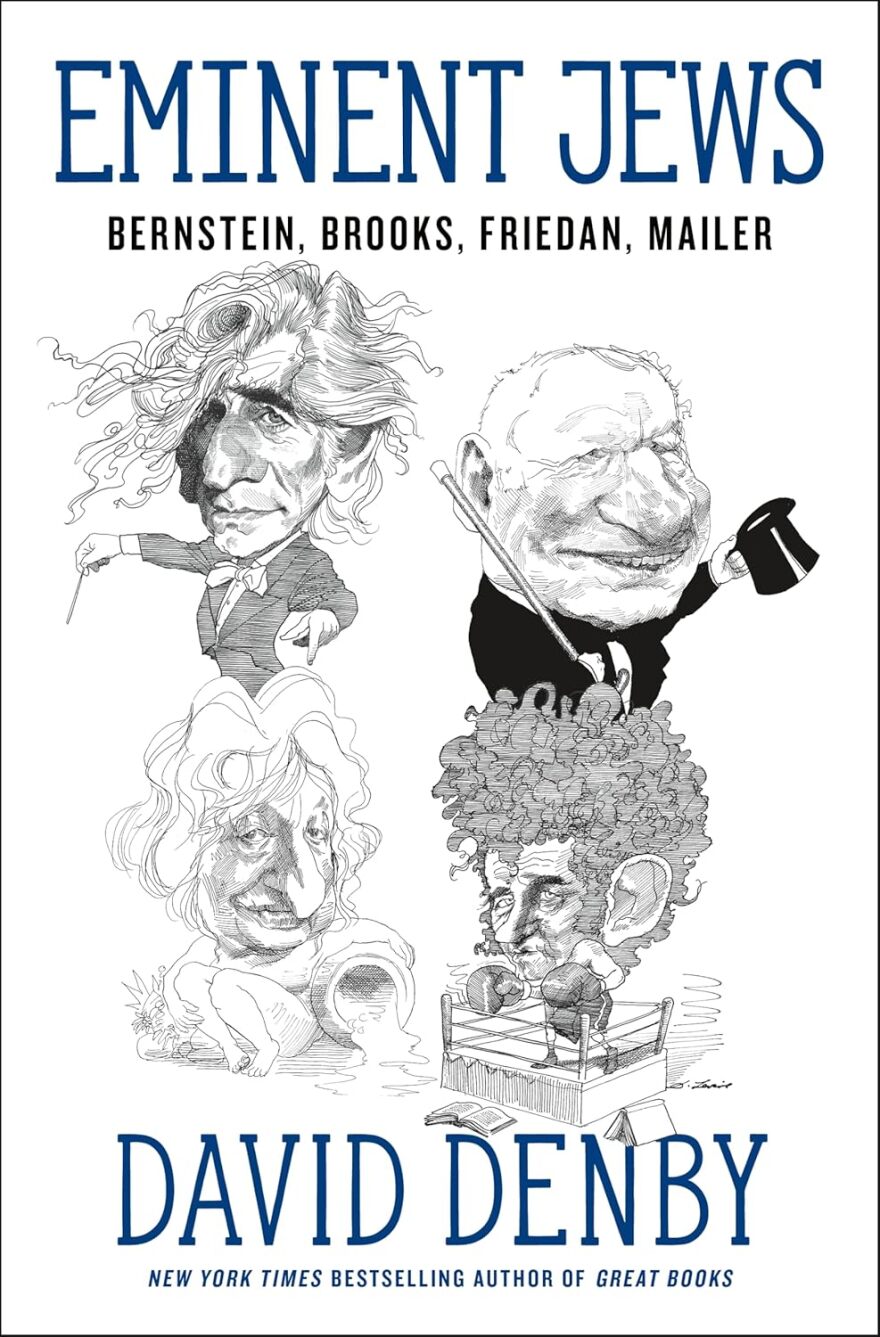
David Denby’s new four-part essay celebration, entitled Eminent Jews, is a shout-out to Lytton Strachey’s 1918 four-person biography collection Eminent Victorians, which changed how prominent people could be profiled. Strarchy’s bios of stalwarts of the Victorian stalwarts exposed warts and all, as the expression goes, the best known of whom was Florence Nightingale - no sweet angel of mercy, she.
Queen Victoria reigned a long time, from 1837 to 1901. The period Denby focuses on in Eminent Jews is relatively narrow, the post-war years -- the `50s, `60s, and `70s, largely defined by a culture Denby calls the Golden Age of American Jews. It was a time, he writes, “when shame and silence about being Jews was vanquished.” His book he says is “a composite picture of the ideology and practice of postwar Jewish cultural achievement” It stars Mel Brooks, Betty Friedan, Norman Mailer, and Leonard Bernstein.
Strachey, Denby says, was amused by and critical of his often ignorant and hypocritical subjects, while he is unabashedly admiring, in particular revering Mel’s unique comic genius and in awe of Bernstein’s polymathic brilliance as a conductor, composer, performer, and teacher.
And despite acknowledging some serious behavioral issues – Mailer’s stabbing his second wife (of six) in the heart and Bernstein’s cruelty and dependence on sex and drugs -- Denby says that all four in some way made him who he is today as a writer, husband, and father. His quartet had courage, loved family, felt an obligation to their heritage, and to America.
Here are the children of the first wave of Russian and Eastern European Jewish immigrants – their “exuberant brazenness” –so unlike many WASP-like German Jews. Four outrageous, assimilated, supremely talented innovators who made their mark on America intellectually and artistically- brash, manic, over-the-top exemplars of a Jewish ethos and energy that drove their ambition. They were, as Denby says -- his last words in the book -- ”100% American and 100% Jewish.”
But why these four? Although Brooks, Friedan, Mailer, and Bernstein lived at approximately the same time, they never interacted. Nor do their chapters connect – each one could be read alone and in a different order. What unifies them are the short Preface, Prologue and Epilogue where Denby posits his themes. His four reflect a time of relative happiness for American Jews, in different professions. They’re free of Nazi menace and protected by American “laws, customs and sentiment.”
Given the temper of our own times, might an answer to the question of why these four be nostalgia and unease? Eminent Jews was completed in 2024 and makes reference to the savage October 2023 attack on Israel by Hamas, and the upsurge of anti-Jewish and anti-Israel uprisings on American campuses and in countries all over the world. In this regard, Denby’s Golden Age may be seen as a high point in a darkening world.
The photos include some rarely seen shots; the research is impeccable; the sentiments generous, but . . . could this foursome now assert such Old Testament fierceness against prejudice, inequality, injustice and tradition? Could Mel Brooks’ Blazing Saddles be made today? Would Norman Mailer’s new journalism find readers? Would Betty Friedan be appreciated by the LGBTQ community? Would Lenny and his beloved Mahler find a rapturous reception? I don’t think so. I don’t think Denby does, either.


